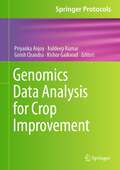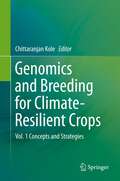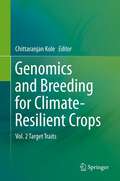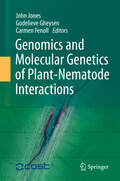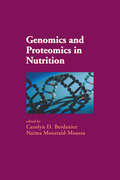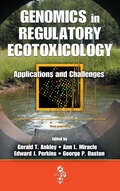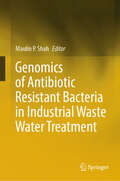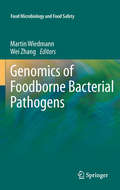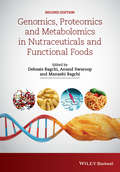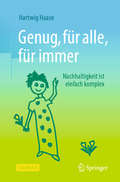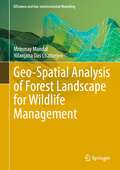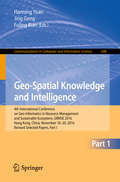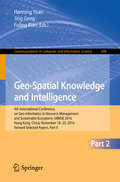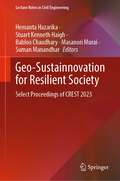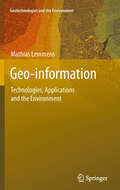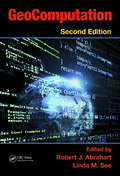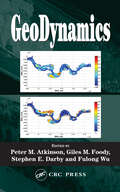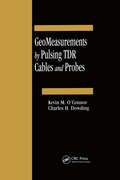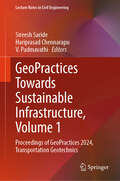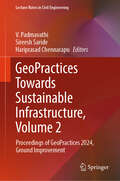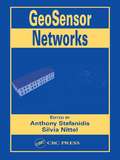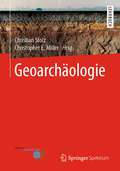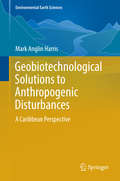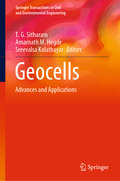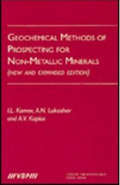- Table View
- List View
Genomics Data Analysis for Crop Improvement (Springer Protocols Handbooks)
by Girish Chandra Kuldeep Kumar Priyanka Anjoy Kishor GaikwadThis book addresses complex problems associated with crop improvement programs, using a wide range of programming solutions, for genomics data handling and sustainable agriculture. It describes important concepts in genomics data analysis and sequence-based mapping approaches along with references. The book contains 16 chapters on recent developments in several methods of genomic data analysis for crop improvements and sustainable agriculture, all authored by eminent researchers who are experts in their fields. These chapters focus on applications of a wide range of key bioinformatics topics, including assembly, annotation, and visualization of next-generation sequencing (NGS) data; expression profiles of coding and noncoding RNA; statistical and quantitative genetics; trait-based association analysis, quantitative trait loci (QTL) mapping, and artificial intelligence in genomic studies. Real examples and case studies in the book will come in handy when applying the techniques. The relative scarcity of reference materials covering bioinformatics applications as compared with the readily available books also enhances the utility of this book. The targeted readers of the book are scientists, researchers, and bioinformaticians from genomics and advanced breeding in different areas. The book will appeal to the applied researchers engaged in crop improvements and sustainable agriculture by using bioinformatics tools, students, research project leaders, and practitioners from the various marginal disciplines and interdisciplinary research.
Genomics and Breeding for Climate-Resilient Crops
by Chittaranjan KoleClimate change is expected to have a drastic impact on agronomic conditions including temperature, precipitation, soil nutrients, and the incidence of disease pests, to name a few. To face this looming threat, significant progress in developing new breeding strategies has been made over the last few decades. The first volume of Genomics and Breeding for Climate-Resilient Crops presents the basic concepts and strategies for developing climate-resilient crop varieties. Topics covered include: conservation, evaluation and utilization of biodiversity; identification of traits, genes and crops of the future; genomic and molecular tools; genetic engineering; participatory and evolutionary breeding; bioinformatics tools to support breeding; funding and networking support; and intellectual property, regulatory issues, social and political dimensions.
Genomics and Breeding for Climate-Resilient Crops: Vol. 2 Target Traits
by Chittaranjan KoleClimate change is expected to have a drastic impact on agronomic conditions including temperature, precipitation, soil nutrients, and the incidence of disease pests, to name a few. To face this looming threat, significant progress in developing new breeding strategies has been made over the last few decades. The second volume of Genomics and Breeding for Climate-Resilient Crops describes various genomic and breeding approaches for the genetic improvement of the major target traits. Topics covered include: flowering time; root traits; cold, heat and drought tolerance; water use efficiency; flooding and submergence tolerance; disease and insect resistance; nutrient use efficiency; nitrogen fixation; carbon sequestration; and greenhouse gas emissions.
Genomics and Molecular Genetics of Plant-Nematode Interactions
by John Jones Carmen Fenoll Godelieve GheysenThis book reviews developments in the molecular biology of plant-nematode interactions that have been driven by the application of genomics tools. The book will be of interest to postgraduate students and to researchers with an interest in plant nematology and/or plant pathology more generally. A series of introductory chapters provide a biological context for the detailed reviews of all areas of plant-nematode interactions that follow and ensure that the bulk of the book is accessible to the non-specialist. A final section aims to show how these fundamental studies have provided outputs of practical relevance.
Genomics and Proteomics in Nutrition
by Carolyn D. Berdanier Naima Moustaid-MoussaWith contributions from 66 world-renowned authorities on the subject, Genomics And Proteomics In Nutrition focuses on the effect of genetic expression on protein production, establishing links between gene expression and nutrition, the influence of micro- and macronutrients on cellular homeostasis, and the relationship between diet, genetic
Genomics in Regulatory Ecotoxicology: Applications and Challenges
by Edward J. Perkins George P. Daston Gerald T. Ankley Ann L. MiracleFueled partially by large, well-publicized efforts such as the Human Genome Project, genomic research is a rapidly growing area in multiple biological disciplines, including toxicology. Much of this potential, however, has been discussed in the literature and at technical meetings only in relatively broad terms, making it difficult to assess exactl
Genomics of Antibiotic Resistant Bacteria in Industrial Waste Water Treatment
by Maulin P. ShahThis book discusses the key problems and solutions with various applicable approaches to combat antibiotic-resistant genes in industrial waste water. Several genes are selected within the chapters to illustrate the past and future roles of molecular ecophysiology and genomics in the development of wastewater microbiology as an important subdiscipline of microbial ecology. As we have very limited knowledge of composition, dynamics and stability of microbial communities, various processes in wastewater treatment have been generally considered to be "black box." In recent years, with the development of several new high throughput sequencing platforms, metagenome sequencing strategies and bioinformatics toolboxes, the analysis of the genome of complex communities has become much more accessible and means easier.The opening of the biological wastewater treatment “black box” is not the unpleasant experience it was before. The viable, but not cultural, ceases to be the inconsequential, uncharacterizable enigma that existed today. Metagenomics leads the way for more specific studies in related fields. Finally, genomic studies of wastewater treatment microbes, in addition to their biotechnological applications, are also an excellent testing ground for variety of other ecological and environmental burns questions. Wastewater treatment plants are considered hotspots for the environmental dissemination of antimicrobial-resistant determinants. Comparative genomics of antibiotic resistant genes isolated from conventional activated sludge and biological aerated filter wastewater treatment plants is discussed.
Genomics of Foodborne Bacterial Pathogens
by Wei Zhang Martin WiedmannFoodborne illnesses caused by various bacterial, viral, and fungal pathogens lead to a high number of morbidity and mortality in the U.S. and throughout the world. Recent advances in microbial genomics have significantly improved our understanding of the physiology, evolution, ecology, epidemiology, and pathogenesis of different foodborne pathogens. This book focuses on the genomics of foodborne bacterial pathogens. It begins with a brief overview of the recent advances in microbial genomics and the impact of genomics on food safety research. Then, eight chapters follow that elaborate some in-depth reviews on the genomics of several common foodborne bacterial pathogens including Bacillus, Campylobacter, Clostridium, Escherichia coli, Listeria, Salmonella, Staphylococcus, and Vibrio. Finally, the last four chapters focus on some current genomic, transcriptomic, and proteomic technologies and their applications in studying the epidemiology, evolution, and pathogenesis of foodborne bacterial pathogens. Genomics of Foodborne Bacterial Pathogens can be used as a reference by scientists and professionals in academia, government, and industry who are interested in understanding microbial genomics and using genomics tools to study foodborne bacterial pathogens. This book can also be used as a textbook for instructors and professors who teach food microbiology or microbial genomics-related courses at the post-graduate level.
Genomics, Proteomics and Metabolomics in Nutraceuticals and Functional Foods
by Manashi Bagchi Debasis Bagchi Anand SwaroopFunctional foods and nutraceuticals have received considerable interest in the past decade largely due to increasing consumer awareness of the health benefits associated with food. Diet in human health is no longer a matter of simple nutrition: consumers are more proactive and increasingly interested in the health benefits of functional foods and their role in the prevention of illness and chronic conditions. This, combined with an aging population that focuses not only on longevity but also quality of life, has created a market for functional foods and nutraceuticals. A fully updated and revised second edition, Genomics, Proteomics and Metabolomics in Nutraceuticals and Functional Foods reflects the recent upsurge in "omics" technologies and features 48 chapters that cover topics including genomics, proteomics, metabolomics, epigenetics, peptidomics, nutrigenomics and human health, transcriptomics, nutriethics and nanotechnology. This cutting-edge volume, written by a panel of experts from around the globe reviews the latest developments in the field with an emphasis on the application of these novel technologies to functional foods and nutraceuticals.
Genug, für alle, für immer: Nachhaltigkeit ist einfach komplex
by Hartwig HaaseWie können wir Klimakrise und Ressourcenverknappung bewältigen? Wie muss ein Werkzeugkasten zur Reparatur der Menschheitsprobleme bestückt sein? Reicht das Werkzeug der Effizienz oder benötigen wir auf Grund der Dringlichkeit und der existenziellen Bedeutung einen ganzen Satz an Strategien, Methoden und Werkzeugen?Dieses Buch gibt Antworten auf diese Fragen und einen Überblick über unterschiedliche Konzepte der Nachhaltigkeit. Es zeigt die Bandbreite an Perspektiven auf, wie den bestehenden Herausforderungen begegnet werden kann. Dabei wirbt es für ein starkes Miteinander der Strategien und ermutigt jeden zum Handeln und zur Veränderung.
Geo-Spatial Analysis of Forest Landscape for Wildlife Management (GIScience and Geo-environmental Modelling)
by Nilanjana Das Chatterjee Mrinmay MandalThis book presents research on landscape ecology and the relationship between humans and wildlife. It helps readers understand how ecological patterns and processes are interconnected. This research illustrates and proposes (practicable) management strategies toward long-term ecological restoration and mitigation of consequences of conflict. Increasing wildlife activities in localities and forest fringes are an alarming issue. Ecological processes like movement, colonization, extinction and conflict issues depend on the landscape and ecological activities, the movement for example of migratory elephants and their colonization not only affects society but the wildlife and biodiversity too. Strategic management measures can contribute to enriching the biodiversity, habitat quality as well as landscape, while minimizing human-wildlife conflicts. This book describes landscape ecological patterns and processes, habitat dominancy, habitat dependency, suitability, connectivity and corridor selection. To synthesize these patterns and processes, several ecological indices are used. Use of geo-spatial techniques improves future management strategies for similar circumstances, especially, related to forest regeneration and forest restoration. This book provides a concise overview to a wide range of readers including postgraduate students, researcher, academics, landscape planners, decision makers and even local populations. The techniques and management strategies described should help planners to improve forest management, by implementing quality enhancement programs such as plantation area selection and corridor selection.
Geo-Spatial Knowledge and Intelligence
by Fuling Bian Hanning Yuan Jing GengThe two volume proceedings of CCIS 698 and 699 constitutes revised selected papers from the 4th International Conference on Geo-Informatics in Resource Management and Sustainable Ecosystem, GRMSE 2016, held in Hong Kong, China, in November 2016. The total of 118 papers presented in these proceedings were carefully reviewed and selected from 311 submissions. The contributions were organized in topical sections named: smart city in resource management and sustainable ecosystem; spatial data acquisition through RS and GIS in resource management and sustainable ecosystem; ecological and environmental data processing and management; advanced geospatial model and analysis for understanding ecological and environmental processes; applications of geo-informatics in resource management and sustainable ecosystem.
Geo-Spatial Knowledge and Intelligence
by Fuling Bian Hanning Yuan Jing GengThe two volume proceedings of CCIS 698 and 699 constitutes revised selected papers from the 4th International Conference on Geo-Informatics in Resource Management and Sustainable Ecosystem, GRMSE 2016, held in Hong Kong, China, in November 2016. The total of 118 papers presented in these proceedings were carefully reviewed and selected from 311 submissions. The contributions were organized in topical sections named: smart city in resource management and sustainable ecosystem; spatial data acquisition through RS and GIS in resource management and sustainable ecosystem; ecological and environmental data processing and management; advanced geospatial model and analysis for understanding ecological and environmental processes; applications of geo-informatics in resource management and sustainable ecosystem.
Geo-Sustainnovation for Resilient Society: Select Proceedings of CREST 2023 (Lecture Notes in Civil Engineering #446)
by Hemanta Hazarika Stuart Kenneth Haigh Babloo Chaudhary Masanori Murai Suman ManandharThis book presents select proceedings of the 2nd International Conference on Construction Resources for Environmentally Sustainable Technologies (CREST 2023), and focuses on sustainability, promotion of new ideas and innovations in design, construction and maintenance of geotechnical structures with the aim of contributing towards climate change adaptation and disaster resiliency to meet the UN Sustainable Development Goals (SDGs). It presents latest research, information, technological advancement, practical challenges encountered, and solutions adopted in the field of geotechnical engineering for sustainable infrastructure towards climate change adaptation. This volume will be of interest to those in academia and industry alike.
Geo-information
by Mathias LemmensGeomatics, the handling and processing of information and data about the Earth, is one geoscience discipline that has seen major changes in the last decade, as mapping and observation systems become ever more sensitive and sophisticated. This book is a unique and in-depth survey of the field, which has a central role to play in tackling a host of environmental issues faced by society. Covering all three strands of geomatics - applications, information technology and surveying - the chapters cover the history and background of the subject, the technology employed both to collect and disseminate data, and the varied applications to which geomatics can be put, including urban planning, assessment of biodiversity, disaster management and land administration. Relevant professionals, as well as students in a variety of disciplines such as geography and surveying, will find this book required reading. This rapidly developing field uses increasingly complex and accurate systems. Today, technology enables us to capture geo-data in full 3D as well as to disseminate it via the Web at the speed of light. We are able to continuously image the world from space at resolutions of up to 50 cm. Airborne LiDAR (laser surveying) sensors can be combined with digital camera technology to produce geometrically correct images of the Earth's surface, while integrating these with large-scale topographic maps and terrestrial as well as aerial images to produce 3D cityscapes that computer users can explore from their desktops.
GeoComputation
by Robert J. Abrahart Linda SeeA revision of Openshaw and Abrahart's seminal work, GeoComputation, Second Edition retains influences of its originators while also providing updated, state-of-the-art information on changes in the computational environment. In keeping with the field's development, this new edition takes a broader view and provides comprehensive coverage across the
GeoDynamics
by Peter M. Atkinson Fulong Wu Giles M. Foody Stephen E. DarbyWhile remote sensing gives a surface depiction of the world, its recent convergence with GIS enables richer depictions that can be used to simulate physical processes, identify trends, and make more accurate predictions. GeoDynamics is based on specialized lectures from an international field of experts, addressing remote sensing, spatially
GeoMeasurements by Pulsing TDR Cables and Probes
by Kevin M O'Connor Charles H DowdingGeoMeasurements by Pulsing TDR Cables and Probes examines Time Domain Reflectometry (TDR) research and provides information on its use as a robust, reliable, and economical production tool.Common uses for TDR technology include telecommunications and power industries, but the text examines applications such as measurement of moisture of unsaturated soils; detection of fluids for leak and pollution; measurement of water levels for hydrological purposes; measurement of water pressures beneath dams; and deformation and stability monitoring of mines, slopes, and structures.Chapters discuss:basic physics of signal generation, transmission, and attenuation along the coaxial cableprobe designs and procedures for calibration as well as the variation in probe responses to changes in water content and soil mineralogyvariations in waveform characteristics associated with cable, deformation, cable calibration, and installation techniques for metallic cables in rockseveral cases demonstrating the use of TDR cables in soil as well as weathered and soft rocka rationale for the use of compliant cable in soilthe use of metallic cable (MTDR) and optical fiber (OTDR) to monitor response of structuressensor/transducer components, connections from the sensors to the TDR pulser/sampler, and system control methodsavailable software for transmission and analysis of TDR signatures The diverse interest and terminology within the TDR community tends to obscure commonalities and the universal physical principles underlying the technology. The authors seek to crystallize the basic principles among the seemingly divergent specialties using TDR technology in geomaterials. By examining varied experiences, GeoMeasurements by Pulsing TDR Cables and Probes provides a synergistic text necessary to unify the field.
GeoPractices Towards Sustainable Infrastructure, Volume 1: Proceedings of GeoPractices 2024, Transportation Geotechnics (Lecture Notes in Civil Engineering #589)
by Sireesh Saride Hariprasad Chennarapu V. PadmavathiThis book discusses the proceedings of the National Conference on GeoPractices for Sustainable Infrastructure (GeoPractices 2024), focusing on the sustainable aspects of geotechnical engineering practices, particularly in highway construction and related ground improvement techniques. It covers topics such as alternative and sustainable construction materials, processes, and design considerations for pavement construction and enhancing weak soils. The publication highlights advanced practices and developments, including the use of geosynthetics, bioremediation, and incorporating industrial byproducts to lower carbon footprint, preserve natural resources, and minimize waste generation. The book is intended to be a valuable resource for emerging researchers and industry professionals interested in advancing sustainable infrastructure.
GeoPractices Towards Sustainable Infrastructure, Volume 2: Proceedings of GeoPractices 2024, Ground Improvement (Lecture Notes in Civil Engineering #592)
by Sireesh Saride Hariprasad Chennarapu V. PadmavathiThis book discusses the proceedings of the National Conference on GeoPractices for Sustainable Infrastructure (GeoPractices 2024), focusing on the sustainable aspects of geotechnical engineering practices, particularly in highway construction and related ground improvement techniques. It covers topics such as alternative and sustainable construction materials, processes, and design considerations for pavement construction and enhancing weak soils. The publication highlights advanced practices and developments, including the use of geosynthetics, bioremediation, and incorporating industrial byproducts to lower carbon footprint, preserve natural resources, and minimize waste generation. The book is intended to be a valuable resource for emerging researchers and industry professionals interested in advancing sustainable infrastructure.
GeoSensor Networks: Second International Conference, Gsn 2006, Boston, Ma, Usa, October 2006 (Lecture Notes In Computer Science / Information Systems And Applications, Incl. Internet/web, And Hci Ser. #4540)
by Anthony Stefanidis Silvia NittelGeoSensor Networks addresses multiple research challenges related to real-time geosensor data collection, management, analysis, and delivery. It examines these issues in a collection of papers submitted by experts in diverse research domains. Providing a cross-disciplinary forum that will foster collaboration and development, this volume has four s
Geoarchäologie
by Christian Stolz Christopher E. MillerDas erste deutschsprachige Lehrbuch der Geoarchäologie bietet einen hervorragenden Einstieg in eine vielfältige Disziplin, die der Archäologie wie auch der Physischen Geographie und anderen Geowissenschaften zugewandt ist. Der Überblick über die breite methodische Vielfalt der Geoarchäologie macht dieses Buch zum verlässlichen Nachschlagewerk für Studierende, Forschende und Praktiker. Es gehört daher zum unverzichtbaren Handwerkszeug für alle, die sich mit umwelt- und kulturgeschichtlichen Fragen auseinandersetzen. Geoarchäologische Fragestellungen zählen zu den populärsten Themen innerhalb der beteiligten Fächer. Durch die Entschlüsselung von Geoarchiven mithilfe moderner Datierungs- und Analysemethoden und interdisziplinären Ansätzen gelingt es, frühere Kulturen innerhalb ihrer Umwelt zu verorten und vergangene Landschaften zu rekonstruieren. Gerade im Zeitalter des globalen Wandels erscheint es umso wichtiger, Zustände, Prozesse und Dynamiken der Vergangenheit zu verstehen, nicht zuletzt um daraus gewonnene Erkenntnisse auf zukünftige Entwicklungen anwenden zu können. Das Buch wurde von Wissenschaftlerinnen und Wissenschaftlern von über 30 verschiedenen Universitätsinstituten, Behörden und Forschungseinrichtungen erarbeitet. Die Herausgeber sind Sprecher des 2004 gegründeten Arbeitskreises Geoarchäologie. Ihre über 70 Mitautorinnen und Mitautoren gehören zu den kundigsten Fachleuten ihrer Themen im deutschsprachigen Raum und darüber hinaus.
Geobiotechnological Solutions to Anthropogenic Disturbances
by Mark Anglin HarrisThis book offers a problem-and-solution approach toenvironmental remediation in mining, including the environmentally sustainableutilization of waste materials from the mining industry. It largely comprisesarticles published in Springer journals, which have been thoroughly revised andexpanded. With supplementary data and illustrations, it discusses specificproblem areas in relevant Caribbean locations and provides an overview ofgeotechnical and microbial solutions to prevent post-mining deterioration inthis area.
Geocells: Advances and Applications (Springer Transactions in Civil and Environmental Engineering)
by T. G. Sitharam Sreevalsa Kolathayar Amarnath M. HegdeThis book is designed to serve as a comprehensive resource on cellular confinement systems or geocells, covering technologies and their applications in geotechnical engineering. The book discusses all aspects of geocells and related technologies, and covers the subjects from conceptual basics to recent advances. The chapters of this book are written by renowned international experts and its contents include detailed case studies from both academic and industry experts. This book is a one-stop reference work for academicians, students, and practicing engineers in the global geotechnical community.
Geochemical Methods of Prospecting for Non-Metallic Minerals
by I. L Komov A. N. Lukashev A. V. KoplusGeochemical methods of prospecting for and evaluation of minerals are applied widely today at all stages of geological exploration. However, geochemical methods of prospecting for many classes of non-metallic minerals have not been elaborated. This book is a completely revised, updated and expanded edition of the publication by the same authors, wh
